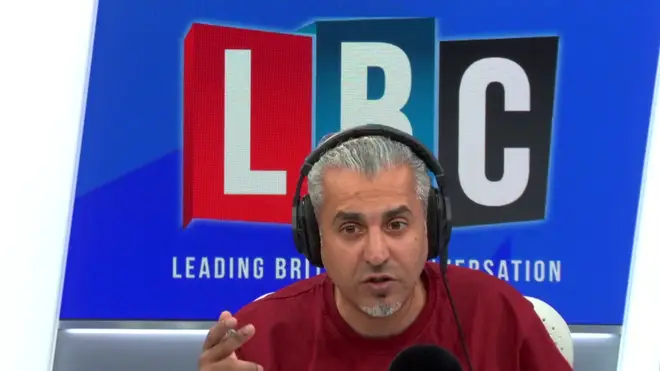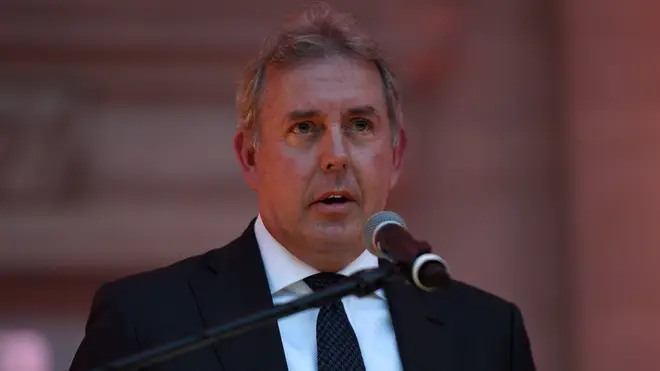
Henry Riley 7pm - 10pm
13 July 2019, 15:19 | Updated: 13 July 2019, 17:52
Maajid Nawaz hit back at Scotland Yard's warning to newspapers not to publish anymore of the leaked emails from British ambassador Sir Kim Darroch after launching a criminal investigation.
Met Police Assistant Commissioner Neil Basu warned the media that further publication of the ambassador's emails could be a criminal offence, as the Counter Terrorism Command launched an investigation to determine who leaked the official communications from Sir Kim Darroch.
But Maajid Nawaz hit back, arguing that the police do not get to decide what can or cannot be published by the media.
Speaking on his LBC show, Maajid said the police are welcome to investigate who leaked the documents, but they are not entitled to cajole the journalists who published them.
"Leaking them is a very separate action to the press publishing them," he said.
"Whether or not it's in the public interest for the public to see these government documents is a decision that an editor of a newspaper makes, not a decision that the police forces make."

Maajid then described the warning from Scotland Yard as "chilling".
"I can't believe I even have to utter these words: In a free and fair democracy, the police do not decide, nor do they ever get to decide, what can or cannot be published."
In response to criticisms of his warning, the Assistant Commissioner Neil Basu clarified that the Metropolitan Police "has no intention of seeking to prevent editors from publishing" stories that are in the public interest, and was merely alerting journalists "to the risk of breaching the Official Secrets Act".
In a statement, Mr Basu said: "The media hold an important role in scrutinising the actions of the state.
"We are however a body charged with enforcing the law, and we have received legal advice that has caused us to start a criminal enquiry into the leak of these specific documents as a potential breach of the Official Secrets Act (OSA).
"However we have also been told the publication of these specific documents, now knowing they may be a breach of the OSA, could also constitute a criminal offence and one that carries no public interest defence.
"We know these documents and potentially others remain in circulation.
"We have a duty to prevent as well as detect crime and the previous statement was intended to alert to the risk of breaching the OSA."

The Metropolitan Police Counter Terrorism Command, which is responsible for investigating breaches of the Official Secrets Act, launched the criminal investigation into alleged leaking of official communications from British ambassador Sir Kim Darroch.
In the emails, the diplomat described the Trump administration as "inept" and "uniquely dysfunctional".
President Trump responded to the leak calling the ambassador a "pompous fool" and "a stupid guy", but later wished Sir Kim well.
"I wish the British ambassador well, but they have got to stop their leaking problems there," Mr Trump told reporters.
Watch above.